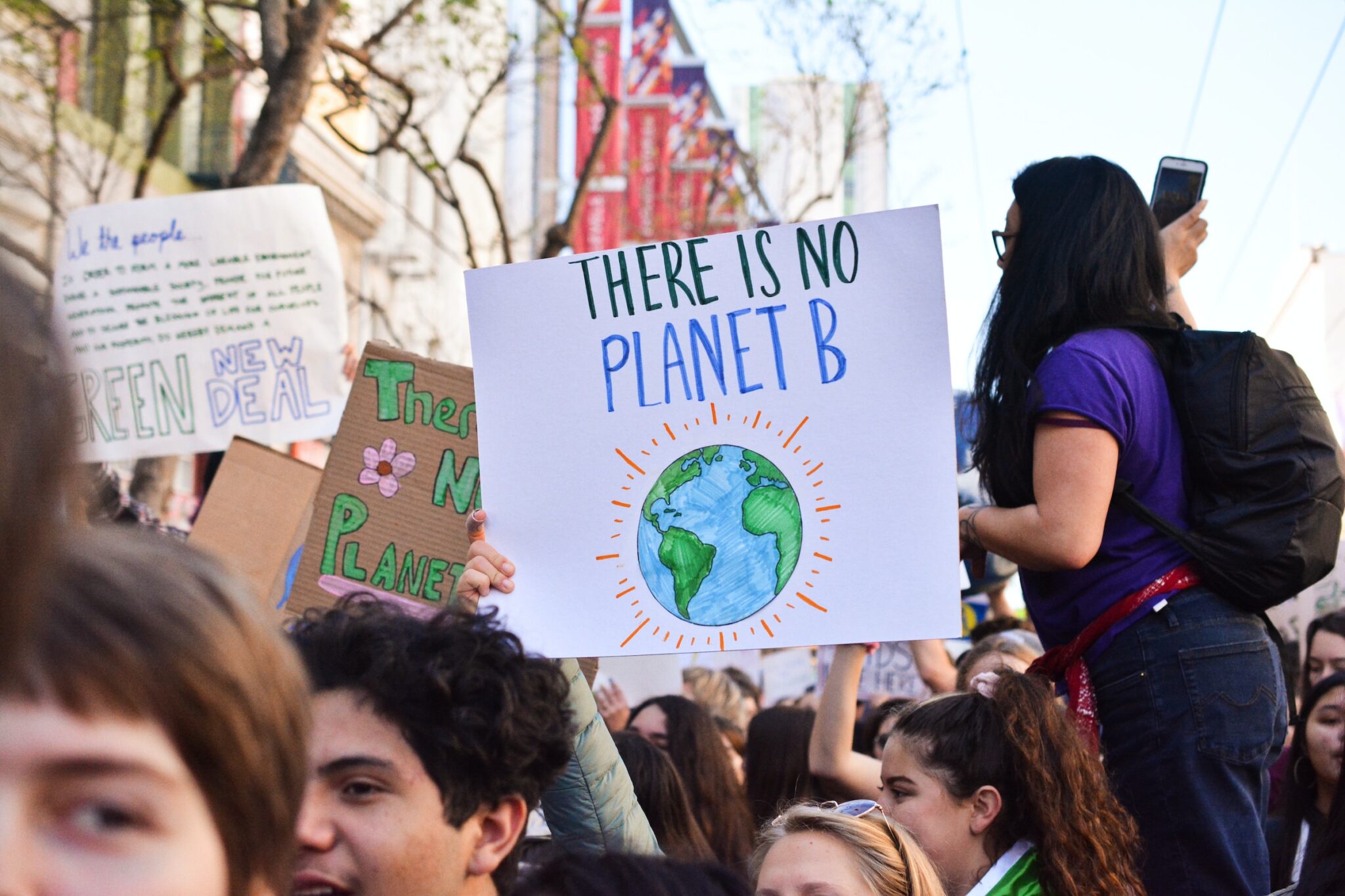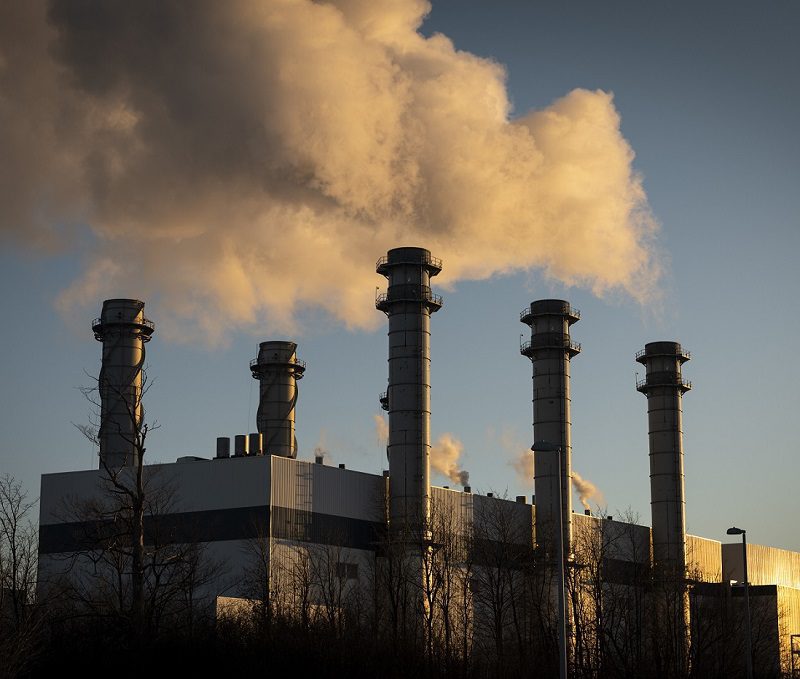If you’re concerned about climate change and inspired to take action, and are looking for where to begin – you’re in the right place!
Here you’ll find our list of six easy and affordable, yet meaningful, actions to get you started.
A piece of wisdom before we dive in – we know that facing climate change is daunting alone. No one person can do it all or save the day. It’s something we have to work on together. If we all do our part, take collective action, embrace diversity in our approaches, and implement a wide range of ambitious and impactful solutions, then it’s not too late to prevent the worst outcomes for the climate. And the chance to protect our beautiful, amazing planet, full of every person we love and every home we know, is absolutely worth fighting for.
So, what can you do about climate change? Here’s how to get started.
1. Get informed

If you’re just getting started and feel like you want to learn more about climate change there are many incredible resources out there. Here are a few of our favourites on the science of climate change, the barriers to addressing it in Canada, and some of the important climate solutions we can implement right away.
For more information about how we’re fighting climate change at Environmental Defence Canada, you can read our blogs on a range of climate issues and solutions. You can also join our newsletter for up-to-date information on our climate campaigns and ongoing actions you can take to support our work.
Climate change is a multifaceted issue and there’s so much information out there. But, you don’t need to be an expert on climate change to care and take action.
2. Connect through climate conversations

Another immediate and easy thing you can do is bring climate change into conversations with your family, friends, and communities. This type of action is sometimes overlooked, but did you know that showing we care about climate change can really influence people we are already in relationships with?
Studies have shown that kids play a large role in shaping their parent’s perspectives on climate change, and that all of us have unconscious biases that make us more likely to accept information that comes from people we know and trust. That means the people in your life are often more likely to listen to and trust you than the climate experts.
Connecting with others can be particularly meaningful if you’re dealing with eco-anxiety. And with more and more people becoming concerned about climate change, it’s likely whoever you talk to will care too.
Tip: If you’re having conversations with someone who doesn’t agree or wants to debate climate science or solutions, here’s a helpful guide for how to have de-polarized conversations.
3. Amp up your advocacy
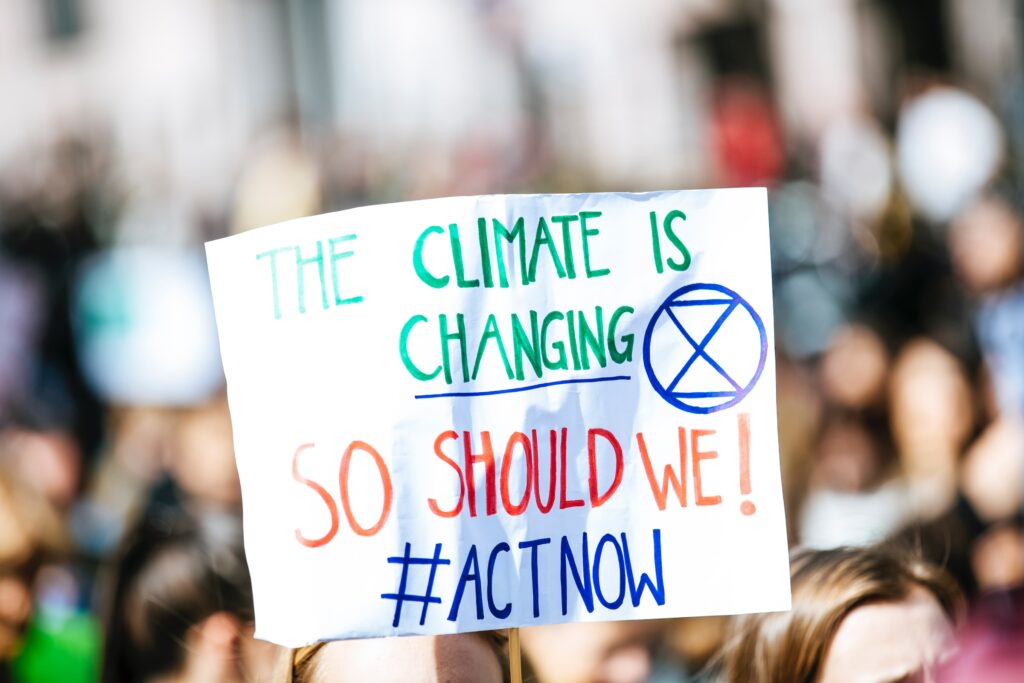
For ways you can easily support climate action at the click of a button, check out our Take Action page. Here you’ll find petitions you can sign and online letters you can send to elected representatives expressing your support for climate policy solutions and demanding action to protect the people, places, and planet.
It’s valuable for elected officials to hear about the issues their constituents care about, and it’s also useful for Environmental Defence staff to be able to point to public support for an issue when we advocate directly to governments. We get our power from you!
For more ideas about how to amp up your advocacy efforts, check out our youtube series Advocacy 101, which includes videos on how to call your local representatives and how to take your advocacy digital.
Raising your voice can be both empowering and impactful, and so can amplifying the voices of those being most affected by climate change and others whose stories and actions inspire you. Share actions you’re taking and stories you’re moved by!
4. Buy fewer things and eat more sustainably
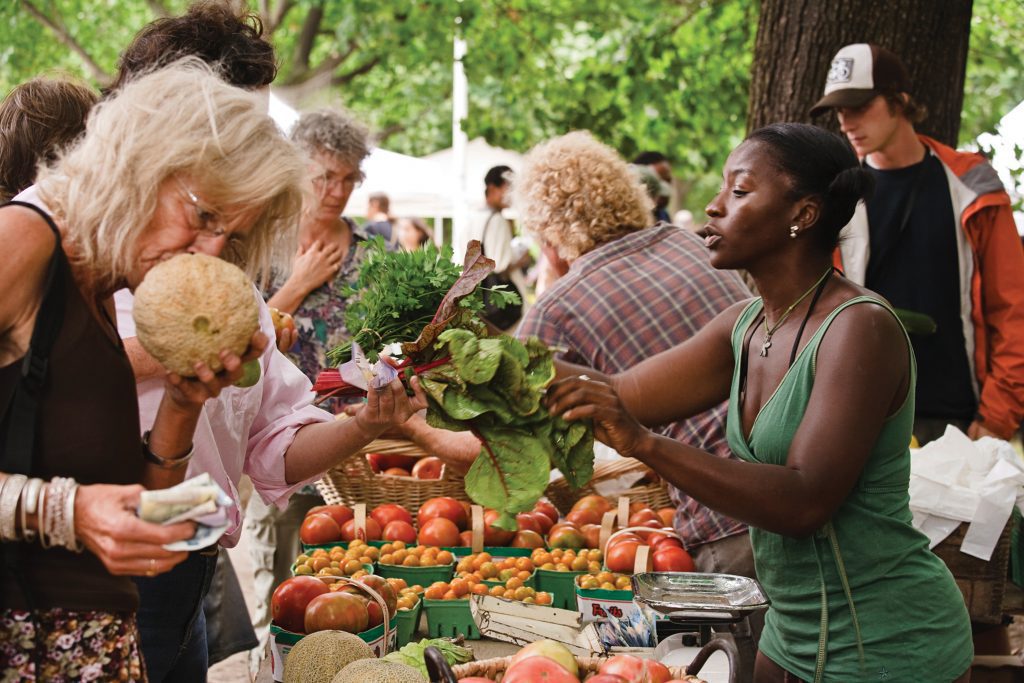 Sometimes it’s helpful to start by making changes in your daily life. A very cost effective way to begin is by decreasing your consumption of non-essentials. Modern consumer culture promotes the constant purchase of new things. ‘Reduce’ is the most important part of the mantra ‘reduce, reuse, recycle’ – especially for plastics, which pollute at every part of their lifecycle. You can prioritize mending and re-using items you have, consider buying second hand items when you need something new, or borrowing items for occasional use.
Sometimes it’s helpful to start by making changes in your daily life. A very cost effective way to begin is by decreasing your consumption of non-essentials. Modern consumer culture promotes the constant purchase of new things. ‘Reduce’ is the most important part of the mantra ‘reduce, reuse, recycle’ – especially for plastics, which pollute at every part of their lifecycle. You can prioritize mending and re-using items you have, consider buying second hand items when you need something new, or borrowing items for occasional use.
The foods we consume also make a difference. Sustainable eating habits can look a lot of different ways while embracing diverse and delicious cultural foods and practices, as well as health needs and personal contexts. Options include reducing food waste, looking for sustainably produced ingredients, and eating less meat and more plant based foods – you could even try growing some vegetables yourself!
5. Get moving, without the greenhouse gases
 Transportation is the biggest contributor to carbon emissions in Ontario – over 30 per cent. Most of these emissions are from passenger vehicles, so start by considering the impact of your everyday journeys. Walk, cycle, take public transit, and carpool or car-share whenever possible.
Transportation is the biggest contributor to carbon emissions in Ontario – over 30 per cent. Most of these emissions are from passenger vehicles, so start by considering the impact of your everyday journeys. Walk, cycle, take public transit, and carpool or car-share whenever possible.
When you’ve got farther to go, choose alternatives to air travel if you have the option – like taking the train instead of short flights. To make alternatives to air travel more accessible and appealing, we also need to advocate for improvements to rail networks and a connected network of urban public transportation options (you can help us do that here).
6. Keep fighting for climate action with us!
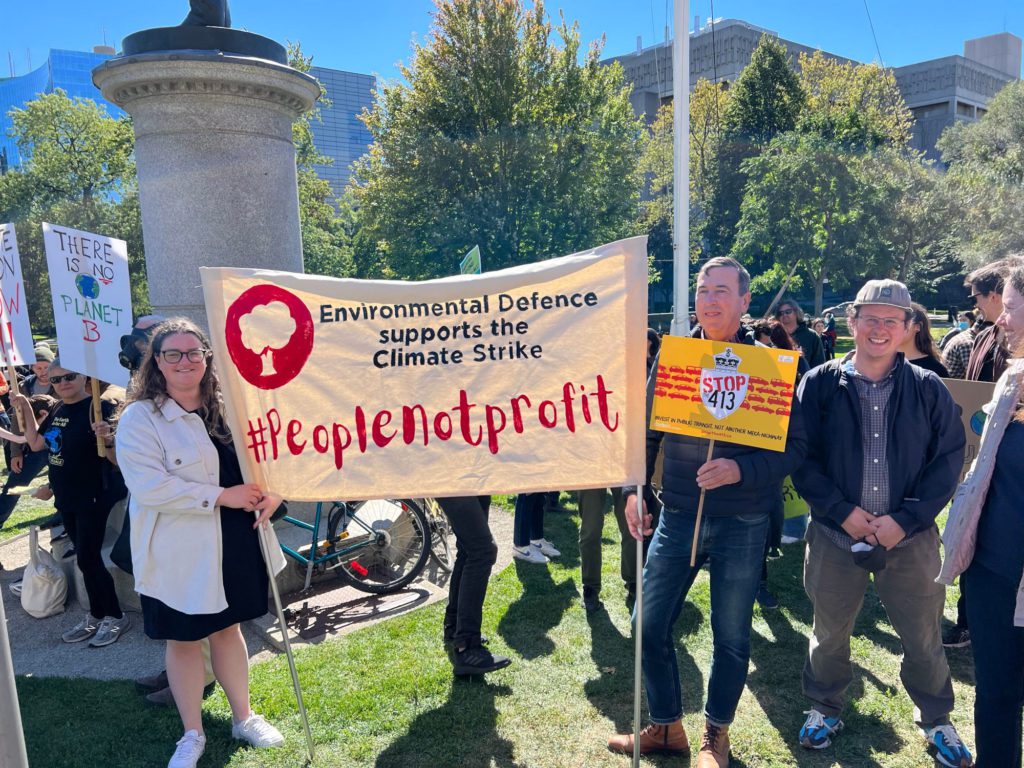 Of course, fighting climate change cannot be solved through individual actions. It requires government action and change at the policy level. That’s where we come in.
Of course, fighting climate change cannot be solved through individual actions. It requires government action and change at the policy level. That’s where we come in.
Environmental Defence is a leading Canadian environmental advocacy organization that works with government, industry and individuals to defend clean water, a safe climate and healthy communities. We are a charity that fights for a future where everyone in Canada can live and thrive in a healthy environment – protected for generations to come. We rely on the support of individuals to continue our work to fight the climate crisis, protect our environment and ensure a safe future for us all. If you have the means to financially support our work, we would be most grateful.
We hope this list helps you get started on climate action. Remember, we have the solutions to fight climate change. And they’re available, affordable and reliable. Momentum is growing, and we need you, to be part of the solution.
Want to do more? Check out these five more climate actions you can take to have an impact.



